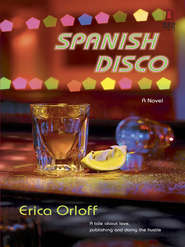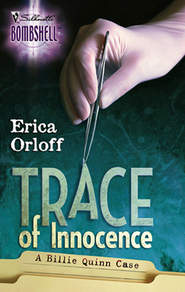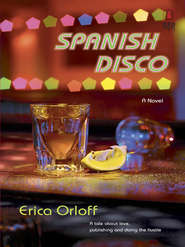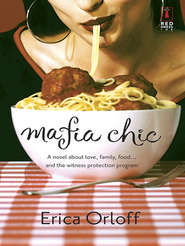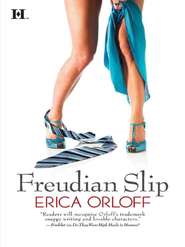По всем вопросам обращайтесь на: info@litportal.ru
(©) 2003-2024.
✖
Trace Of Doubt
Настройки чтения
Размер шрифта
Высота строк
Поля
My father was considering selling my childhood home.
My brother was again dabbling in the same sort of things that got him arrested before.
And my mother’s killer had decided I would make a nice mouse.
No, there wasn’t a pill big enough to fix what was wrong with my life.
Chapter 5
I trained my gun on the paper silhouette at the end of the firing range. Six shots later I had nailed my target square between the eyes, twice in the heart, once in the belly, once in the shoulder and once pretty close to where his family jewels might be.
I knew I was a good shot. What troubled me was knowing that if I ever came face-to-face with someone, conditions wouldn’t be like the firing range, where I could concentrate and focus and aim ever so accurately. Guns were my father’s and Mikey’s territory, not mine. When I fired my handgun, I usually pictured myself coolly facing down my mother’s killer, channeling my anguish into something powerful and calculatingly devastating.
I took off my ear muffs and safety glasses, put my gun in its holster and checked my watch. It was time to go home. David and I had made plans to take Bo to the park.
As I left the firing range, I thought about Marcus’s case. And my mother’s. DNA isn’t done on every case. Now, more and more, it is, but there just isn’t enough money—particularly if you have a public defender, like Marcus did. Sometimes, in old cases, tests weren’t done simply because they didn’t exist at the time, or because the advances in technology were too new. For instance, now we can test with smaller fragments of DNA than ten years ago. The specimen doesn’t have to be as pure. The tiny drop of blood found in Marcus’s case didn’t belong to him or his victim. It opened a window for his possible release.
I walked the five blocks to my car. I had parked it down a side street. The neighborhood wasn’t the best; it was a warehouse district, and Saturday left it abandoned. I instinctively shook my head to clear my mind and pay better attention. I walked taller and deliberately appeared more confident. I had been in plenty of seedy bars in tough parts of town with Dad and Mikey. If you don’t look for trouble, but don’t appear afraid, you’re more likely to be left alone.
I reached my Caddy and started to climb in, but noticed a large brown envelope tucked under the windshield wiper blade on the passenger side. I walked around my car and retrieved it, opening it right away.
Then I screamed. Inside was a thick lock of human hair with what looked like dried bits of blood attached to it. I squinted and looked closer. The hair definitely had once been caked in blood. Someone had left me a “souvenir.”
I scanned the street. I didn’t see anyone, and it could have been left for me two hours before, when I first arrived at the shooting range. Then I got an eerie feeling. I couldn’t identify it precisely, but a cold chill tingled at the back of my neck. I had the sense I was being watched. I told myself it was because I was unnerved by the sickening present left for me, but I wasn’t so sure.
Hands shaking, I unlocked the car door on the passenger side and put the envelope on the seat. Then I took my gun from its holster and whirled around. No one was visible anywhere, but I spied an open bay on the warehouse to my left.
Quickly I dashed the few yards to the cement stairs leading up into the bay and climbed them to the open door. I went from the hot, blazing sunlight into the cavernous dark of an unlit warehouse. It was cooler, but also stuffy. I could smell old diesel fuel or gasoline, and could hear the scurrying of rats. Then I heard someone running in heavy boots or shoes.
“Who’s there?” I shouted. With my gun drawn, I ran in the direction of the footfall. The further I followed, the darker the warehouse was.
Boxes were stacked high all around me. I stopped for a minute, straining to hear where the person was running to next, but all I could hear was my own heartbeat in my ears, my breath ragged and seemingly loud enough to echo. I was both terrified and determined to discover who had left me the package.
As I rounded one set of boxes, I glimpsed a guy in black pants and a black jacket running away. It was hot as hell, and my first thought was he must be a drug addict to be dressed in dark colors with long sleeves on a day with the temperature hitting ninety-two in the shade. Maybe he had the damp chills of withdrawal. I couldn’t get a decent look at him in the darkness beyond figuring he was about five foot ten or eleven. I ran faster. A window was broken in the back of the warehouse, allowing light to come through a few cracks, almost like shards of sun. As I got a little closer to the person who’d obviously left me a souvenir, my heart pounded more wildly. He was wearing a mask. A creepy flesh-colored one that fit him like second skin, a Halloween-type mask.
I was instantly conscious of my gun. I tried to think clearly. Fire the gun, Billie, and you had better be prepared to kill him. To kill another human being. For what? Leaving me a weird package. I decided that retreating and calling the cops was a much smarter option.
I turned and did a complete about-face, running the other way now, keeping my gun at my side. I bumped against a tall stack of boxes, which teetered and fell over on top of me. The cardboard boxes, heavy with—according to their labels—electronics, smashed against me, knocking me to the hard cement warehouse floor. One hit my head, and I felt like I chipped a back tooth. My gun clattered to the floor next to me.
Panic started to overtake me. I shoved my arms out as hard as I could, pushing off the boxes, grabbing my gun and standing up. My assailant was nowhere to be seen.
I climbed out of the pile of boxes and ran for the bay door. Looking out, I didn’t see him, but my eyes burned, and tears involuntarily formed from the sudden sting of bright sunlight. I leaped down and reached my car, opening my door with my left hand—shaking a bit, fumbling for the lock because I’m right-handed—one eye on the bay, aware of my gun in my right hand.
Gratefully I got the door open.
I hurriedly clambered in and shut the door, locked it, and put my gun on the seat next to me. I jammed the keys in the ignition, fighting the rising tide of panic, feeling like I was drowning in my own heartbeat.
Thank God, my Caddy is a dream. Her engine raced, and I pulled away from the curb with a screech of my tires. Looking in my rearview mirror, I saw him emerge from the warehouse, his masked face, almost like a burn victim’s, expressionless and waxy. His hair, I saw, was a cheap wig. I gunned the car and as I picked up speed, I looked again in my rearview mirror, but he was gone, almost as if it had been some weird nightmare. As if it had never really happened. I didn’t even dial the cops. They’d think it was some weird attempt to scare me. A stalker. I drove, pedal nearly to the floor, until I was ten or fifteen blocks away. Then I followed signs for the Turnpike. When I reached the highway, I pulled into the first rest stop. Only when I was parked and feeling safe, did I allow my sheer terror to bubble to the surface. My hands shook, my teeth chattered, and I wanted to scream aloud. I gripped my sides and rocked back against my seat until I felt the horror of that creep subside. Then I tried to think.
Was he the man who murdered my mother?
Or did he have something to do with a case?
Either way, I decided from now on, I was going to be armed. And I had a sneaking suspicion Tommy Salami was going to be visiting me very soon. Lewis was my best friend, and if I told him what happened, I knew he’d tell my Dad. It was the only time he ever betrayed a confidence: if he felt I was in danger. And for only the second time in my life, I had to agree. I really and truly was.
Chapter 6
In the predawn hours of Sunday morning, Bo leaped on the bed and licked David’s face to beg him to go out. David groaned but rose and slipped into shorts to take him. I rolled over and snuggled deeper under the covers, where I felt safe.
About fifteen minutes later David returned, dropped his shorts to the floor and slid back into bed with me. He spooned around me, his body like a perfect sculpture, like the statue of David. “I love you, Billie.”
“Love you, too,” I murmured.
“I really wish you’d call the police.” He kissed the nape of my neck and with tiny flicks of his tongue, kissed all the way to my shoulder, which was bruised from my fall in the warehouse.
“No.” After my attack, I had driven to the lab to have the souvenir in the envelope processed. “I think it has to do with my mother’s case. And they didn’t help my family before, so it’s not like I want their help now. You, more than anyone, should understand that.”
When David was arrested, he had an iffy alibi but impeccable character witnesses—and no visible motive. But the police seemed only too happy to consider the case closed. Of course, it turned out one of the men in blue had done it.
He kissed my bare shoulder. “I do.”
We lay there in silence for a while. Sometimes, David and I were like two islands, separated by the choppy waters of the tragedies that had happened to each of us. Sometimes we clung to each other desperately, like two survivors of a shipwreck.
The sun came up, and I rose and made a pot of coffee. I fed my cat and then showered and got ready for the long ride to see Marcus.
This particular Sunday I liked the quiet of the four-hour or so drive to Dannemora, which rises like a fortress in upstate New York. My family, anyone who’s spent time there, calls it Little Siberia. In the winter, Oneida County might as well be the real Siberia. Snowfall is measured in feet, not inches. The lake system means lots of white-outs, snow and fog blowing in off the water. It’s desolate and despairing. And in the midst of this harsh landscape, the stone prison rises, forbidding, like an evil queen’s torturous snow palace.
In contrast, during the summer, the area around Dannemora is green and lush. But it’s still isolated. No one else lives in Clinton, New York, except the prison guards, workers and their families. I mean, others do, but the town mostly exists for the support of Little Siberia.
I’ve spent much of my life visiting relatives in prison, including my grandfather. Each penitentiary has its own atmosphere and variations on the rules. My father and Mikey usually served at minimum-security facilities. I had uncles who served in Dannemora, Sing-Sing and Auburn. One of my more troubled cousins even got involved in a major drug-trafficking scheme and is serving in the escape-proof federal facility in Leavenworth, Kansas. He’ll be there a long time, thanks to minimum-sentencing guidelines. He’s gone practically mad from the lack of human contact there—his behavior’s earned him time in a lockdown section where no natural light ever makes its way in.
Prison has sounds like no other place. An echoing roar of male voices, almost like a buzzing hive of killer bees. Bars clanging, buzzers sounding, shouts, screams, catcalls, whistles, televisions blaring. If you watch carefully, you can see men communicating with hand signals. Gang signs flash. When I arrived at Dannemora, I waited to be processed, identified as one of Marcus Hopkins’s defense-team members. Eventually I was shown to a meeting room where Marcus and I could talk.
My brother was again dabbling in the same sort of things that got him arrested before.
And my mother’s killer had decided I would make a nice mouse.
No, there wasn’t a pill big enough to fix what was wrong with my life.
Chapter 5
I trained my gun on the paper silhouette at the end of the firing range. Six shots later I had nailed my target square between the eyes, twice in the heart, once in the belly, once in the shoulder and once pretty close to where his family jewels might be.
I knew I was a good shot. What troubled me was knowing that if I ever came face-to-face with someone, conditions wouldn’t be like the firing range, where I could concentrate and focus and aim ever so accurately. Guns were my father’s and Mikey’s territory, not mine. When I fired my handgun, I usually pictured myself coolly facing down my mother’s killer, channeling my anguish into something powerful and calculatingly devastating.
I took off my ear muffs and safety glasses, put my gun in its holster and checked my watch. It was time to go home. David and I had made plans to take Bo to the park.
As I left the firing range, I thought about Marcus’s case. And my mother’s. DNA isn’t done on every case. Now, more and more, it is, but there just isn’t enough money—particularly if you have a public defender, like Marcus did. Sometimes, in old cases, tests weren’t done simply because they didn’t exist at the time, or because the advances in technology were too new. For instance, now we can test with smaller fragments of DNA than ten years ago. The specimen doesn’t have to be as pure. The tiny drop of blood found in Marcus’s case didn’t belong to him or his victim. It opened a window for his possible release.
I walked the five blocks to my car. I had parked it down a side street. The neighborhood wasn’t the best; it was a warehouse district, and Saturday left it abandoned. I instinctively shook my head to clear my mind and pay better attention. I walked taller and deliberately appeared more confident. I had been in plenty of seedy bars in tough parts of town with Dad and Mikey. If you don’t look for trouble, but don’t appear afraid, you’re more likely to be left alone.
I reached my Caddy and started to climb in, but noticed a large brown envelope tucked under the windshield wiper blade on the passenger side. I walked around my car and retrieved it, opening it right away.
Then I screamed. Inside was a thick lock of human hair with what looked like dried bits of blood attached to it. I squinted and looked closer. The hair definitely had once been caked in blood. Someone had left me a “souvenir.”
I scanned the street. I didn’t see anyone, and it could have been left for me two hours before, when I first arrived at the shooting range. Then I got an eerie feeling. I couldn’t identify it precisely, but a cold chill tingled at the back of my neck. I had the sense I was being watched. I told myself it was because I was unnerved by the sickening present left for me, but I wasn’t so sure.
Hands shaking, I unlocked the car door on the passenger side and put the envelope on the seat. Then I took my gun from its holster and whirled around. No one was visible anywhere, but I spied an open bay on the warehouse to my left.
Quickly I dashed the few yards to the cement stairs leading up into the bay and climbed them to the open door. I went from the hot, blazing sunlight into the cavernous dark of an unlit warehouse. It was cooler, but also stuffy. I could smell old diesel fuel or gasoline, and could hear the scurrying of rats. Then I heard someone running in heavy boots or shoes.
“Who’s there?” I shouted. With my gun drawn, I ran in the direction of the footfall. The further I followed, the darker the warehouse was.
Boxes were stacked high all around me. I stopped for a minute, straining to hear where the person was running to next, but all I could hear was my own heartbeat in my ears, my breath ragged and seemingly loud enough to echo. I was both terrified and determined to discover who had left me the package.
As I rounded one set of boxes, I glimpsed a guy in black pants and a black jacket running away. It was hot as hell, and my first thought was he must be a drug addict to be dressed in dark colors with long sleeves on a day with the temperature hitting ninety-two in the shade. Maybe he had the damp chills of withdrawal. I couldn’t get a decent look at him in the darkness beyond figuring he was about five foot ten or eleven. I ran faster. A window was broken in the back of the warehouse, allowing light to come through a few cracks, almost like shards of sun. As I got a little closer to the person who’d obviously left me a souvenir, my heart pounded more wildly. He was wearing a mask. A creepy flesh-colored one that fit him like second skin, a Halloween-type mask.
I was instantly conscious of my gun. I tried to think clearly. Fire the gun, Billie, and you had better be prepared to kill him. To kill another human being. For what? Leaving me a weird package. I decided that retreating and calling the cops was a much smarter option.
I turned and did a complete about-face, running the other way now, keeping my gun at my side. I bumped against a tall stack of boxes, which teetered and fell over on top of me. The cardboard boxes, heavy with—according to their labels—electronics, smashed against me, knocking me to the hard cement warehouse floor. One hit my head, and I felt like I chipped a back tooth. My gun clattered to the floor next to me.
Panic started to overtake me. I shoved my arms out as hard as I could, pushing off the boxes, grabbing my gun and standing up. My assailant was nowhere to be seen.
I climbed out of the pile of boxes and ran for the bay door. Looking out, I didn’t see him, but my eyes burned, and tears involuntarily formed from the sudden sting of bright sunlight. I leaped down and reached my car, opening my door with my left hand—shaking a bit, fumbling for the lock because I’m right-handed—one eye on the bay, aware of my gun in my right hand.
Gratefully I got the door open.
I hurriedly clambered in and shut the door, locked it, and put my gun on the seat next to me. I jammed the keys in the ignition, fighting the rising tide of panic, feeling like I was drowning in my own heartbeat.
Thank God, my Caddy is a dream. Her engine raced, and I pulled away from the curb with a screech of my tires. Looking in my rearview mirror, I saw him emerge from the warehouse, his masked face, almost like a burn victim’s, expressionless and waxy. His hair, I saw, was a cheap wig. I gunned the car and as I picked up speed, I looked again in my rearview mirror, but he was gone, almost as if it had been some weird nightmare. As if it had never really happened. I didn’t even dial the cops. They’d think it was some weird attempt to scare me. A stalker. I drove, pedal nearly to the floor, until I was ten or fifteen blocks away. Then I followed signs for the Turnpike. When I reached the highway, I pulled into the first rest stop. Only when I was parked and feeling safe, did I allow my sheer terror to bubble to the surface. My hands shook, my teeth chattered, and I wanted to scream aloud. I gripped my sides and rocked back against my seat until I felt the horror of that creep subside. Then I tried to think.
Was he the man who murdered my mother?
Or did he have something to do with a case?
Either way, I decided from now on, I was going to be armed. And I had a sneaking suspicion Tommy Salami was going to be visiting me very soon. Lewis was my best friend, and if I told him what happened, I knew he’d tell my Dad. It was the only time he ever betrayed a confidence: if he felt I was in danger. And for only the second time in my life, I had to agree. I really and truly was.
Chapter 6
In the predawn hours of Sunday morning, Bo leaped on the bed and licked David’s face to beg him to go out. David groaned but rose and slipped into shorts to take him. I rolled over and snuggled deeper under the covers, where I felt safe.
About fifteen minutes later David returned, dropped his shorts to the floor and slid back into bed with me. He spooned around me, his body like a perfect sculpture, like the statue of David. “I love you, Billie.”
“Love you, too,” I murmured.
“I really wish you’d call the police.” He kissed the nape of my neck and with tiny flicks of his tongue, kissed all the way to my shoulder, which was bruised from my fall in the warehouse.
“No.” After my attack, I had driven to the lab to have the souvenir in the envelope processed. “I think it has to do with my mother’s case. And they didn’t help my family before, so it’s not like I want their help now. You, more than anyone, should understand that.”
When David was arrested, he had an iffy alibi but impeccable character witnesses—and no visible motive. But the police seemed only too happy to consider the case closed. Of course, it turned out one of the men in blue had done it.
He kissed my bare shoulder. “I do.”
We lay there in silence for a while. Sometimes, David and I were like two islands, separated by the choppy waters of the tragedies that had happened to each of us. Sometimes we clung to each other desperately, like two survivors of a shipwreck.
The sun came up, and I rose and made a pot of coffee. I fed my cat and then showered and got ready for the long ride to see Marcus.
This particular Sunday I liked the quiet of the four-hour or so drive to Dannemora, which rises like a fortress in upstate New York. My family, anyone who’s spent time there, calls it Little Siberia. In the winter, Oneida County might as well be the real Siberia. Snowfall is measured in feet, not inches. The lake system means lots of white-outs, snow and fog blowing in off the water. It’s desolate and despairing. And in the midst of this harsh landscape, the stone prison rises, forbidding, like an evil queen’s torturous snow palace.
In contrast, during the summer, the area around Dannemora is green and lush. But it’s still isolated. No one else lives in Clinton, New York, except the prison guards, workers and their families. I mean, others do, but the town mostly exists for the support of Little Siberia.
I’ve spent much of my life visiting relatives in prison, including my grandfather. Each penitentiary has its own atmosphere and variations on the rules. My father and Mikey usually served at minimum-security facilities. I had uncles who served in Dannemora, Sing-Sing and Auburn. One of my more troubled cousins even got involved in a major drug-trafficking scheme and is serving in the escape-proof federal facility in Leavenworth, Kansas. He’ll be there a long time, thanks to minimum-sentencing guidelines. He’s gone practically mad from the lack of human contact there—his behavior’s earned him time in a lockdown section where no natural light ever makes its way in.
Prison has sounds like no other place. An echoing roar of male voices, almost like a buzzing hive of killer bees. Bars clanging, buzzers sounding, shouts, screams, catcalls, whistles, televisions blaring. If you watch carefully, you can see men communicating with hand signals. Gang signs flash. When I arrived at Dannemora, I waited to be processed, identified as one of Marcus Hopkins’s defense-team members. Eventually I was shown to a meeting room where Marcus and I could talk.
Вы ознакомились с фрагментом книги.
Приобретайте полный текст книги у нашего партнера:
Приобретайте полный текст книги у нашего партнера:






